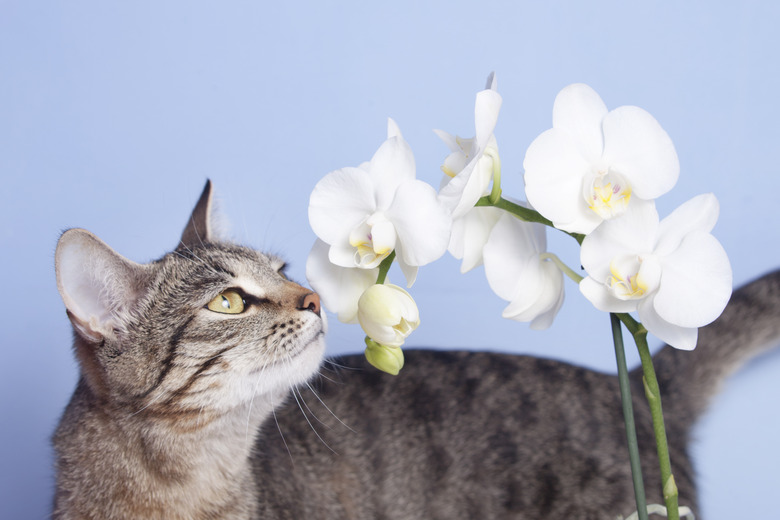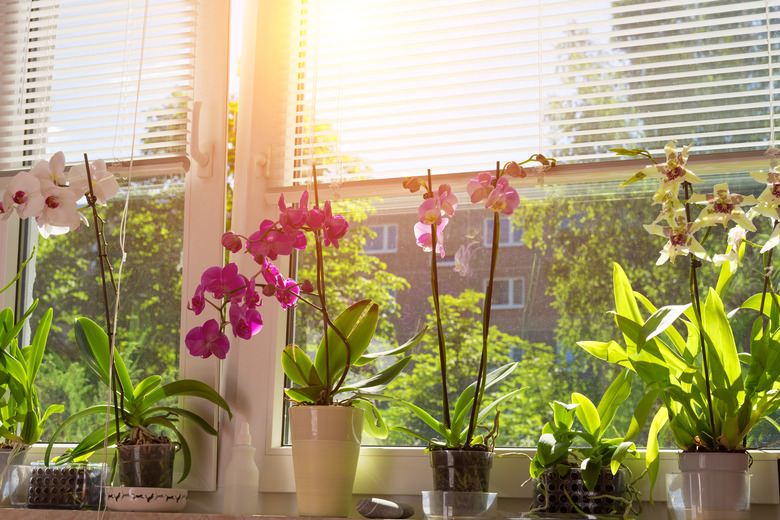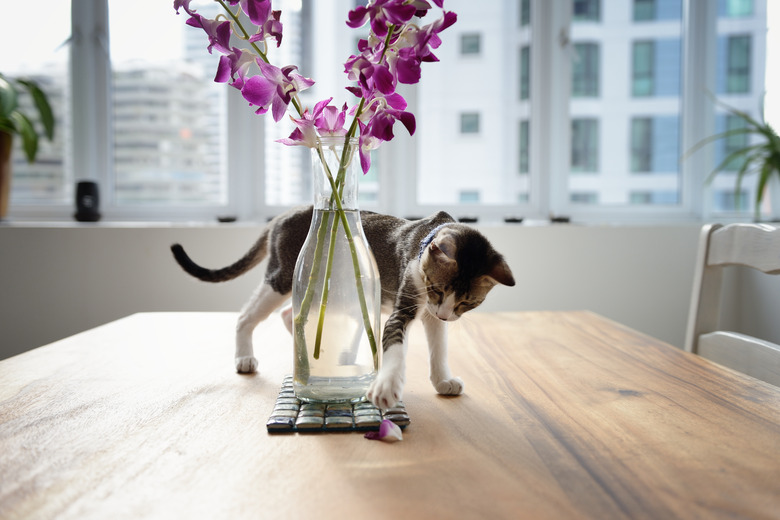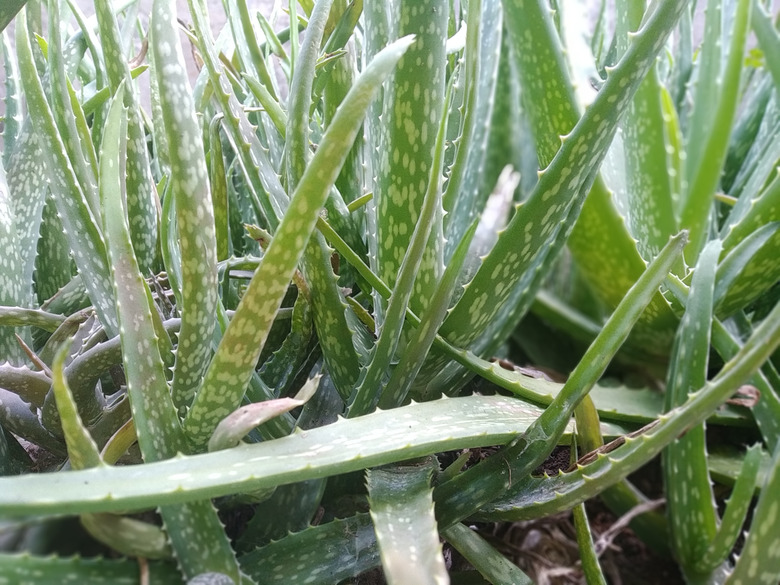Are Orchids Poisonous To Dogs & Cats?
Are Orchids Poisonous To Cats & Dogs?
Plants and flowers beautify and enliven our indoor spaces and make a home feel "homey." But styling your home with plants means more than curating a collection of plants based on their individual sunlight or shade requirements. First and foremost, if you're a plant lover and you also have cats, dogs, or both, you need to choose plants that are non-toxic to pets. While that seems obvious, it's surprising how many pet parents are not aware of the toxicity of some plants, judging by animal poisoning statistics which show that plants rank #5 on the ASPCA Animal Poison Control Center's Top 10 Toxins of 2022. On the other end of the spectrum, some pet parents play it ultra-safe and avoid having any plants or even flower arrangements in their home.
But you're in luck if your plant passion is the exquisite phalaenopsis orchid, otherwise known as the moon orchid or moth orchid. Contrary to what you may have heard about orchids, this little beauty is non-toxic to cats and dogs.
Are orchids poisonous?
Are orchids poisonous?
The good news for pet parents who love orchids is that the phalaenopsis orchid is specifically listed as non-toxic by the ASPCA Animal Poison Control Center. There are about 28,000 species in the orchidaceae family, but the phalaenopsis orchid, is widely considered the best orchid to grow in the home. Since there are so many varieties and hybrids galore, it's possible that one or more, though not proven toxic to dogs or cats as of now, may at some point turn out to be. Since there is no way to know for sure, we recommend not taking a chance when it's possible to keep your orchids safely away from your pets.
For one thing, your orchids may have been treated with a pesticide, and most foreign substances a dog or cat ingests, including plant matter, can cause stomach upset. Plus, these elegant plants with beautiful flowers light up your home with magnificent blooms for months at a time and they're expensive, so letting a dog or cat nibble on your plan can ruin your investment!
Pets and orchids can indeed coexist by simply following a few guidelines:
- Discourage nibbling by putting your orchid on a tray that is dusted with cinnamon powder or cayenne pepper. Or try tucking cinnamon sticks in your orchid pots.
- Make your own pet repellent spray with a combination of an equal portion of water and white or apple cider vinegar.
- Plant your orchids in hanging pots and hang them from hooks in the ceiling or at the top of window frames.
- One of the easiest deterrents is to create a dedicated area for your indoor plants in a sunny area of your home where you can keep the door closed, making it inaccessible to your furry friend unless they are under your supervision.
- If your cat likes to nibble, consider setting up a stand of cat grass. Kits with a mixture of seeds to grow your own grass that is safe for cats to nibble on are widely available. Having some fresh greenery that they are allowed to nibble on can keep your cat away from more dangerous plants.
Signs of abdominal upset
Signs of abdominal upset
If you've done what you can to keep your orchids safe from your pets and still your dog or cat gets their teeth into your orchids, watch for the following symptoms of abdominal discomfort or gastrointestinal upset:
- Vomiting
- Drooling
- Diarrhea
- Behavioral changes such as weakness and general malaise
What to do if your pet eats an orchid
What to do if your pet eats an orchid
Even though the phalaenopsis and some other orchid species are considered non-toxic, if you spot the signs of gastric upset upon your pet ingesting any part of an orchid plant, consult your veterinarian as soon as possible with the name of the orchid and the symptoms you have observed in your pet. If your vet is unavailable, call the ASPCA's National Animal Poison Hotline (888) 426-4435, the best resource to keep handy if your pet has ingested anything potentially poisonous. The Pet Poison Helpline (855)764-7661 is another helpful resource — both are available 24/7, 365 days a year.
Safe houseplants for cats and dogs
Safe houseplants for cats and dogs
As a pet parent, know which plants are toxic and non-toxic. The ASPCA Poison Control Center keeps a comprehensive list of pet-safe plants and dangerous plants. Pet-friendly plants include:
- Cattleya (Cattleya labiata)
- Lady slipper orchid (Impatiens spp.)
- Leopard Orchid or Tiger Orchid (Dendrobium gracilicaule)
- Lily of the Valley Orchid (Odontoglossum pulchellum)
- Pansy Orchid (Miltonia roezlii alba)
- Phalaenopsis Orchid, also known as, Moth Orchid, Moon Orchid (Phalaenopsis sp.)
- Rainbow Orchid (Epidendrum prismatocarpum)
- Spice Orchid (Epidendrum atropurpeum)
- Tailed Orchid (Masdevallia spp.)
- Common garden marigold (Calendula officinalis)
Dangerous houseplants for cats and dogs
Dangerous houseplants for cats and dogs
There are some common and popular houseplants that are not cat safe or dog safe. If your dog or cat eats the following, be on the lookout for symptoms that would need a veterinarian.
- Daffodil
- Aloe vera
- Tulips
- Carnations
Be careful if you bring bouquets of flowers into your home because they can contain mixed flowers that can have some of these non-safe plants in them. Bouquets bought from a store or picked from flowers in parks or in people's yards can also be commonly sprayed with chemical fertilizers or insecticides that can make your pet sick, even if the plants themselves are safe.
The severity of the reaction depends on how much was eaten and the relative size or your cat or dog. If you can, share any information with your veterinarian as far as what was eaten (plant stem, leaves, roots?) and how much.
The bottom line
The bottom line
Orchids are not poisonous to cats and dogs but should not be eaten for a number of reasons, including the possibility of gastrointestinal upset from ingesting a foreign substance or any pesticide residue from the leaves. Your pets and orchids can co-exist if you place your orchids out of their reach, place a repellent near the plants, or create an indoor plant oasis in an inaccessible area. If you're an avid indoor gardener, keep a list of toxic and non-toxic plants handy to refer to when shopping for plants for your home.



